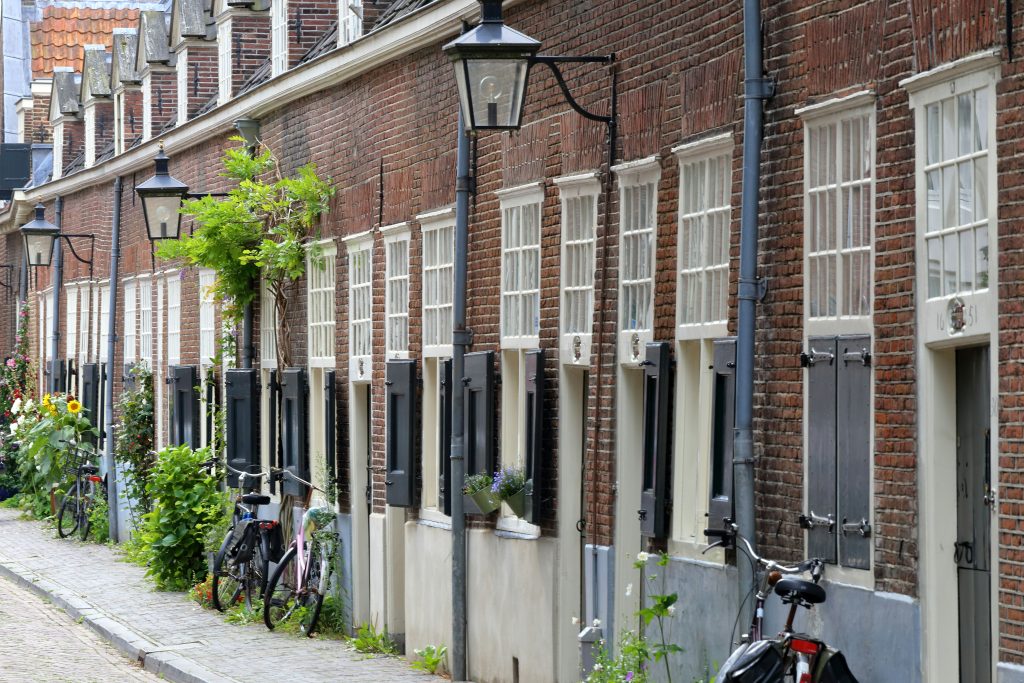How to grant housing rights in the fast-growing Utrecht
From vacancy ordinance to shared housing incentives, the city explains the set of measures implemented to tackle the housing crisis
Energy Cities’ commitment to supporting municipalities in their green transition journey, while at the same time strengthening our democracies, has reached a new workstream in the past year: how to apply sufficiency measures to ensure the housing right?
One of the best examples comes from the city of Utrecht, where significant measures have been implemented in recent years to provide housing for a fast-growing population in a small territory. We had the pleasure of hosting the city’s Deputy Mayor, Dennis de Vries, to learn from Utrecht’s example and explore sufficiency solutions.
Let’s discover the main measures together below. You can also watch the full 30-minute video on Youtube here or listen to the podcast here.
How Utrecht is striving to ensure a decent home for all its residents
As building new apartments alone cannot solve the housing emergency, Utrecht has focused on making better use of what already exists. One of the city’s key measures is the vacancy ordinance, introduced in October 2023. This rule prevents homes from remaining empty for long periods by requiring owners to report vacant properties and encouraging them to rent them out to avoid fines. Thanks to this measure, long-term vacancies dropped by more than 20% in the first year, showing that even existing housing stock can be mobilised to meet urgent needs.
The city also introduced a buy-to-let ban, designed to stop properties from being purchased exclusively as investment opportunities. This has led to a clear decline in investor purchases and has opened the market to more first-time buyers, including younger and lower-income residents.

To encourage new forms of living, Utrecht has launched shared housing incentives, simplifying the rules for people who want to share a home. Up to three individuals can now live together without needing a special permit, making it easier and more affordable to find accommodation in a competitive market.
At the same time, the municipality actively supports housing cooperatives, offering organisational help, subsidies, and new plots of land for cooperative housing projects. These initiatives empower residents to co-create their own living spaces, strengthening community ownership and social cohesion.
Another forward-looking measure is the exploration of long-term affordable ownership models, such as leasehold schemes. These allow middle-income households to buy homes at reduced prices, with costs adjusted according to income and assets. That’s a way to make ownership more equitable and sustainable.
Finally, Utrecht has simplified the rules for converting large homes into smaller units. In several parts of the city, homeowners no longer need a permit to divide a property into multiple apartments, increasing flexibility and better responding to the rising number of smaller households.
What Utrecht asks from the EU
Although housing is not an EU competence, some changes require action from Brussels.
The city calls for an expansion of state aid rules for affordable housing, so that housing associations can also support middle-income groups who often fall between social and market housing.
It also stresses the need for stronger public investment in affordable housing, funding that considers both social and environmental aspects of urban development. Lastly, Utrecht advocates for fair competition in sustainable and circular construction, ensuring that innovative, low-impact housing projects can thrive alongside traditional market players.
Curious to learn more about the housing crisis? Read our latest policy paper Tackling the housing crisis for fairer, more liveable and resilient cities here.
The 15-15 Mayors Energy Talks is a new format we designed to shine a spotlight on mayors’ achievements. These talks provide a platform for local elected representatives to share their successes and inspire others through concise, impactful discussions. Each online session features a 15-minute story from a mayor, deputy mayor or local councillor, followed by a 15-minute discussion with the audience.
This episode is made possible thanks to the financial support of ADEME, the French agency for the environment and energy management

